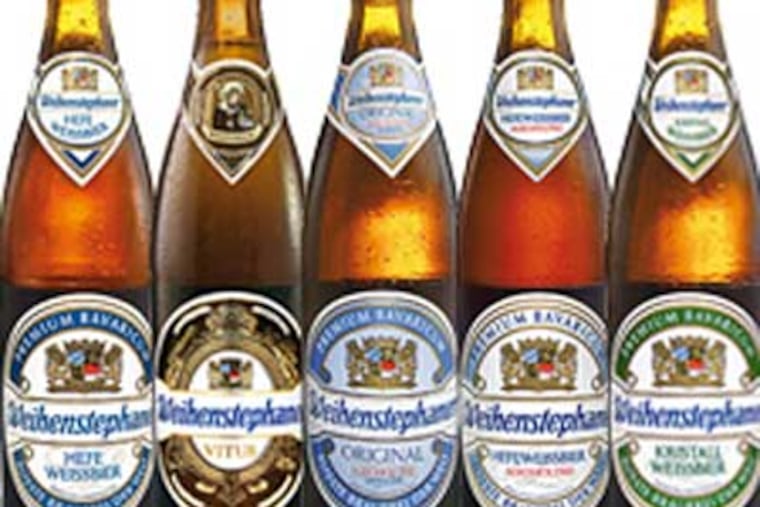Let's be clear: Kristall weiss has much in common with German wheat beer
Kristall weiss: A filtered version of hefeweizen.

Kristall weiss: A filtered version of hefeweizen.
IF THAT DEFINITION doesn't just make your skin crawl, well, you are a cold, heartless turtle. Why would anyone intentionally take one of the world's most-treasured beer styles - a variety whose unique beauty is in its murky, unfiltered body - and intentionally "cleanse" it?
It's as if a brewery imagined that it could improve a Czech pilsner recipe by removing the hops and adding corn or rice. Uhhh . . . on second thought, never mind. What one man (me) defines as "castration," the advertising department spins into "Great Taste! Less Filling!"
The good news is that, even without all that cloudy yeast and wheat sediment, crystal-clear kristall weiss still offers much of the signature aroma and flavor of a German wheat beer. It's the inevitable product of wondrous yeast activity that, at high fermentation temperatures, produces fruity esters and that famously clovelike phenol, 4-vinyl guaiacol. Banana, bubble gum, citrus - it all rises in a plume above the beer's billowing white head of foam.
Plant your nose into a glass of Bavarian-made Weihenstephaner, one of the more widely available kristallweizen in America, and you'll come out with the springlike aroma of grapes and vanilla.
It's in the body where you'll notice the big difference between hefeweizen and a kristallweizen. Where the former boasts the healthy, creamy texture of wheat, the latter is crisply carbonated in a lager kind of way. The flavor is full and - with low hops - the finish is juicy, not dry. It's exceptionally clean and refreshing, like a blue-collar lawn mower beer with upper-crust DNA.
Most of the difference in body is a product of its infamous filtering. Further, without all those suspended yeast nutrients, kristallweizen - unlike its unfiltered big brother - cannot be bottle-conditioned. Now, I'm not going to sit here and tell you I can detect the difference in mouthfeel between natural and artificial bubbles. But I will say that the clear beer seems to lose its head - its most appealing characteristic - a lot more quickly than my beloved hefe.
Deflated, a 10-minute-old kristall weiss looks like an ex at your 20th high school reunion. It leaves you wondering: What did you ever see in that loser?
Which brings us to the infamous lemon.
Having caponized their hefeweizen, Germans - at least the Wolfgangs from the north - will actually plunk a slice into kristallweizen. Perhaps it's penance, or a feeble attempt to replace some of the lost character. Either way, the fruit has the unfortunate side effect of speeding along the foam's demise.
The cure, according to numerous sources, is to drop a few grains of rice into kristallweizen, to supposedly provide a nucleation surface for the formation of more CO-2 bubbles. Dubious, I tried the trick once.
The rice fell to the bottom, then floated up, then back down. Through close examination I can authoritatively report it was directly responsible for the magical creation of precisely seven bubbles. Then, having forgotten the experiment, I continued drinking, till . . .
Well, let's just say this is where adulteration of a perfectly good wheat beer gets you. First they filter it, then you add rice, and then you're writhing on the floor with something stuck in your throat, vowing revenge on an entirely innocent kristall weiss.
Outside of Weihenstephaner's excellent Kristallweissbier, only a handful of varieties can be found on beer shelves. Look for Tucher Kristall Weizen, Erdinger Weissbier Kristallklar and Hacker-Pschorr Kristall Weisse.
Even fewer American brewers have tackled the style. New Glarus Laughing Fox (available only in Wisconsin) might come the closest. While not exactly a kristall weiss, crisp and lightly sweet Leinenkugel's Honey Weiss is a refreshing alternative. n
"Joe Sixpack" is by Don Russell, director of Philly Beer Week. For more on the beer scene, sign up for his weekly email update at www.joesixpack.net. E-mail: joesixpack@phillynews.com.